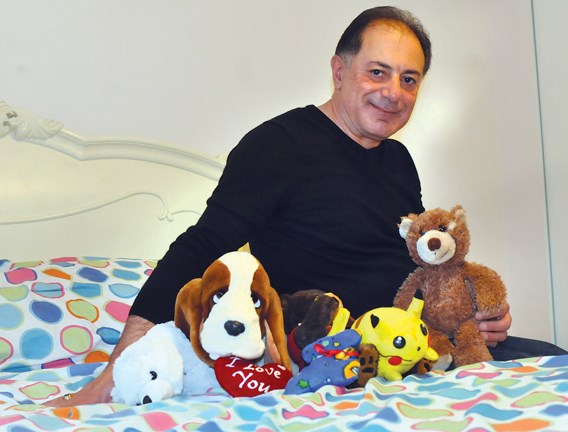For Canyon Heights resident Hisham Wattar, one of the most pressing tasks in the next week will be meeting with North Vancouver school principals and finding classroom spots for two children in his extended family.
“That’s the most urgent thing – to get those kids in school,” he says about his niece’s son and daughter. Also on his list – getting family members signed up for English language classes.
But these are tasks Wattar is happy to have.
After a four-year wait, Wattar got word Thursday morning that his family of privately sponsored Syrian refugees will arrive in Vancouver Dec. 20.
“The kids are jumping up and down. They can’t believe this is actually happening,” he said, shortly after hearing word from Cairo, where the family has been waiting. “They are ecstatic about this.”
Arriving in North Vancouver will be “the ultimate day”, he said. “It’s a day they’re going to start a normal life.”
It’s a dramatic change in just three months. In September, Wattar’s biggest worry was convincing his 28-year-old niece not to risk taking one of the dangerous smugglers’ sea crossings to Europe – a move she considered after starting to lose hope the family would ever be welcomed in her uncle’s adopted country of Canada.
That was a journey similar to the one attempted by the family of Alan Kurdi, the three-year-old boy whose lifeless body was captured in a photograph that shocked the world after the boat he was in capsized, drowning many on board.
It was partly that concern that prompted Wattar to go public in September with his frustration over seemingly endless bureaucratic delays.
He and North Vancouver’s Canyon Heights Church pastor Steve Moore had been trying for two years to bring the Syrian-born Wattar’s family to Canada as privately sponsored refugees.
They had filled out reams of paperwork and spent months waiting – only to be told the family could face over three more years in stateless limbo.
Wattar, who immigrated to Canada in the 1980s, said his family lived a normal life in Syria until the country was torn apart by war. After his 22-year-old nephew took part in student protests during the Arab Spring, the secret service raided the family home with machine guns.
With Wattar’s help, his sister, two nieces and two of his niece’s children fled to Egypt in 2012 and were granted refugee status by the United Nations High Commission on Refugees. And there they waited. Until now.
Wattar credits the public response to the refugee crisis during the election to prompting Canada to act.
“We have to thank the Canadian people,” he said. “They spoke out.”
Wattar said he has high hopes for the refugees under the new Liberal government. “I think this government will keep their promise,” he said. “It’s a whole new direction.”
Under the previous Conservative regime, the biggest problem was political will, he said. “They weren’t interested at all.”
Starting this fall, the family saw the sponsorship process suddenly speed up. They had medical examinations and interviews, followed by orientation sessions on what to expect in Canada – including tidbits on everything from health care to basics on our government.
Wattar said the adults in his family all have a basic understanding of English, though they will need more training.
When the family first arrives, they will be staying in Wattar’s North Vancouver home. Eventually, he is hoping to help them find some affordable housing close to him. “I want them to stay on the North Shore,” he said.
Wattar acknowledges that since the terrorist attacks in Paris, it has been difficult to hear the xenophobic tone of the anti-immigrant sentiment in some discussions.
“You feel like you have to defend yourself all the time for no reason,” says Wattar, a businessman who owns Best Falafel in Vancouver.
“I’m a Muslim. I’m very moderate. Someone has done something bad and then you have to defend yourself against the few who have turned into fanatics.”
Wattar said while he understands some people’s fears, there’s no evidence that refugees later turn out to be terrorists.
“These are people who were left with no home,” he said. “Obviously the people who leave want nothing to do with fighting and wars altogether.”
Wattar said he still thinks the majority of Canadians are “compassionate enough to understand (that).”
“I remain hopeful - when we start seeing the refugees coming in, a lot of people will be out there trying to lend a hand.”



